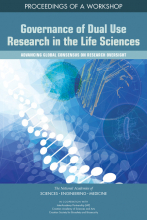
The National Academy of Sciences
1863
The National Academy of Sciences (NAS) is a private, non-profit society of distinguished scholars. Established by an Act of Congress, signed by President Abraham Lincoln in 1863, the NAS is charged with providing independent, objective advice to the nation on matters related to science and technology. Scientists are elected by their peers to membership in the NAS for outstanding contributions to research. The NAS is committed to furthering science in America, and its members are active contributors to the international scientific community. Approximately 500 current and deceased members of the NAS have won Nobel Prizes, and the Proceedings of the National Academy of Sciences, founded in 1914, is today one of the premier international journals publishing the results of original research.
The National Academy of Engineering (NAE) and the National Academy of Medicine (NAM, formerly the Institute of Medicine) -- were founded under the NAS charter in 1964 and 1970, respectively. The three Academies work together as the National Academies of Sciences, Engineering, and Medicine to provide independent, objective analysis and advice to the nation and conduct other activities to solve complex problems and inform public policy decisions. The National Academies also encourage education and research, recognize outstanding contributions to knowledge, and increase public understanding in matters of science, engineering, and medicine. The National Academies' service to government has become so essential that Congress and the White House have issued legislation and executive orders over the years that reaffirm its unique role. More information is available on the National Academies' website: https://www.nationalacademies.org.
















